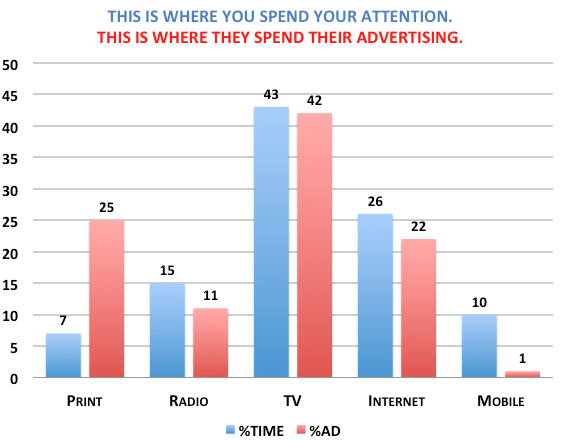Let The (Branding) Games Begin

The 2012 Summer Olympic Games in London aren't due to begin until July 27, yet already every time I find myself watching Hulu, I am greeted by Proctor & Gamble's "Thank You Mom campaign"
As this story on Fox Business points out:
The Olympics have 11 so-called TOP (The Olympic Partner program) sponsors, including Visa (V), Procter & Gamble Co. (PG) and Coca-Cola Co. (KO). TOP sponsorship can mean exclusive rights in industry categories and the ability to use Olympics images and trademarks around the world.
Olympics TOP sponsors likely pay about $100 million for a four-year commitment, said Jim Andrews, senior vice president at sponsor consulting firm IEG, who added that typically sponsors then spend three-to-four times the sponsorship amount to plan and execute the associated marketing campaigns. In other words, being a global Olympics sponsor could mean a commitment of close to half-a-billion dollars.
With that much invested, it's hardly a surprise that these TOP sponsors are early out the gate with their involvement. But there are two interesting trends I've noticed when it comes to Olympic brand involvement in 2012.
1. The 'Socialympics' or The Most Digital Olympics yet.
Perhaps the advertising world has been properly shaken by the chart below, recently published by The Atlantic.
Or perhaps it is simply a natural progression, as social media grows comes into it's own in a way that simply didn't exist previously. Linda Boff, digital and advertising director at GE was quoted as saying in AdWeek that she "'cannot see' a scenario unfolding where brands across the spectrum ignore spending resources on platforms that have come of age since the 2010 Winter Games."
This excellent story on TheNextWeb provides a list of 10 Brands that have committed to participating in the 'Socialympics:' From Facebook pages, to hashtags, to P&G's YouTube push with the "Moms" campaign mentioned above. This Q&A on MediaPost is also a worthy read on the subject, predicting that "Mobile Will Dominate Summer Olympics"
2. Logo Lockdown
The second trend is perhaps a less positive one for brands, and I would hazard to say is coming from the same source of inspiration as the first. With digital advertising and slick, participatory online campaigns capturing the consumer attention, advertisers who have always fared well in a more traditional space are undoubtedly nervous. What is the point of investing all that money if someone with a crafty hashtag can sneak in under the radar and make as big of an impact?
What am I talking about? London's 'Brand Exclusion Zone' and the fact that "To supplement existing law, the British government passed the London Olympics Games and Paralympic Games Act in 2006, to protect the London 2012 Games."
According to this story in The Guardian "A campaign by Nike called Make it Count, featuring Olympic athletes Mo Farah and Paula Radcliffe has proved an even greater success: a survey of Tweeters found that Nike (a non-sponsor) is the brand they most associated with the Games, instead of Adidas, which paid ??100m for official rights."
The Wall Street Journal mentions that "Nike's Flyknit, a shoe that weighs just 5.6 ounces for a size nine and that will be worn by many top runners at the Olympics this summer, is due to hit retail shelves at the end of July and has generated some of the greatest buzz." But will the runners be allowed to wear these shoes within the Brand Exclusion Zone?
AdAge Global reports "To protect sponsors, a 35-day, one-kilometer Brand Exclusion Zone will be enforced around all Olympic venues, inside which no brands that compete with official sponsor brands can advertise. It's not just ads -- spectators trying to pay with the wrong credit card, will not be welcome. " It will be interesting to see if the exclusion is applied to athletes as well.
We're going to continue to aggregate coverage of these two trends on our related Pinterest board, but for the record? My bet is that the brands doing digital right will go home with this year's gold.
Michelle LeBlanc is a Social Media Strategist at IIR USA with a
specialization in marketing. She may be reached at mleblanc@iirusa.com
